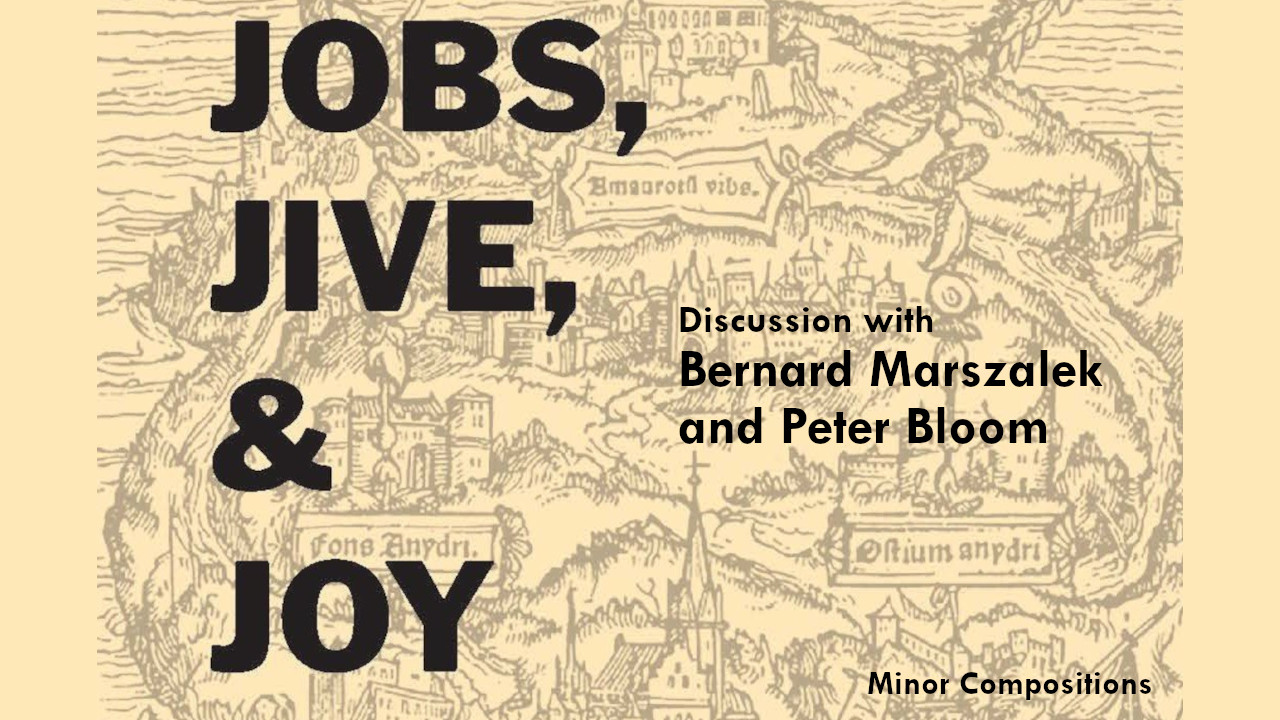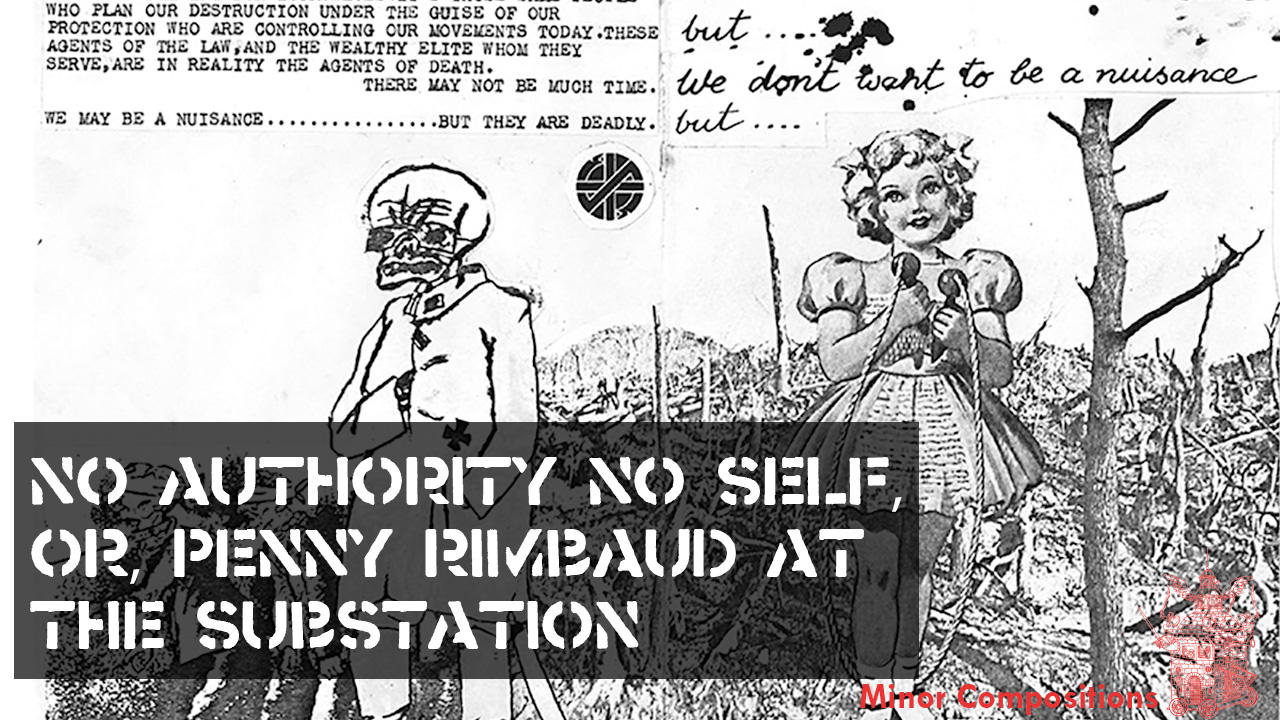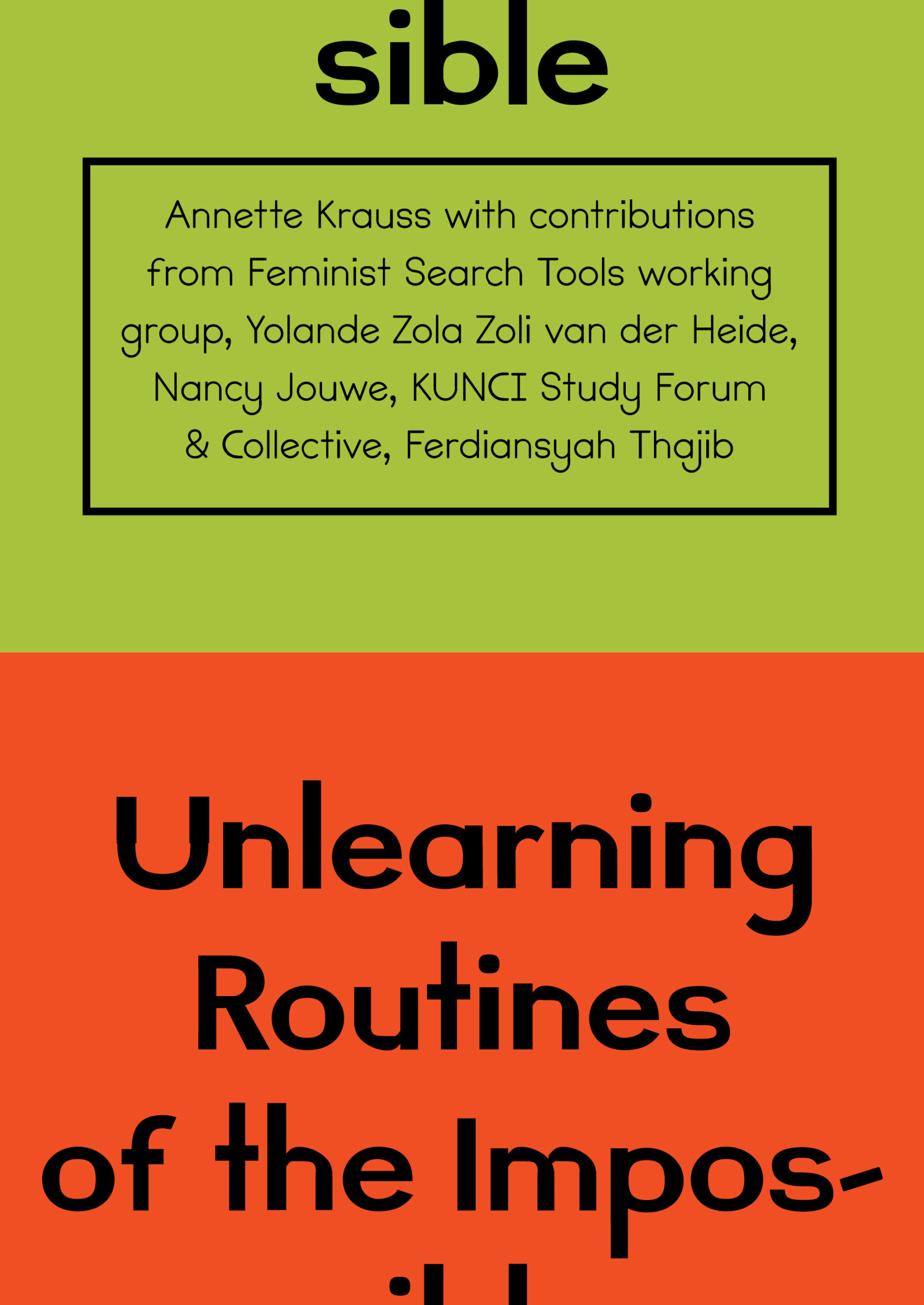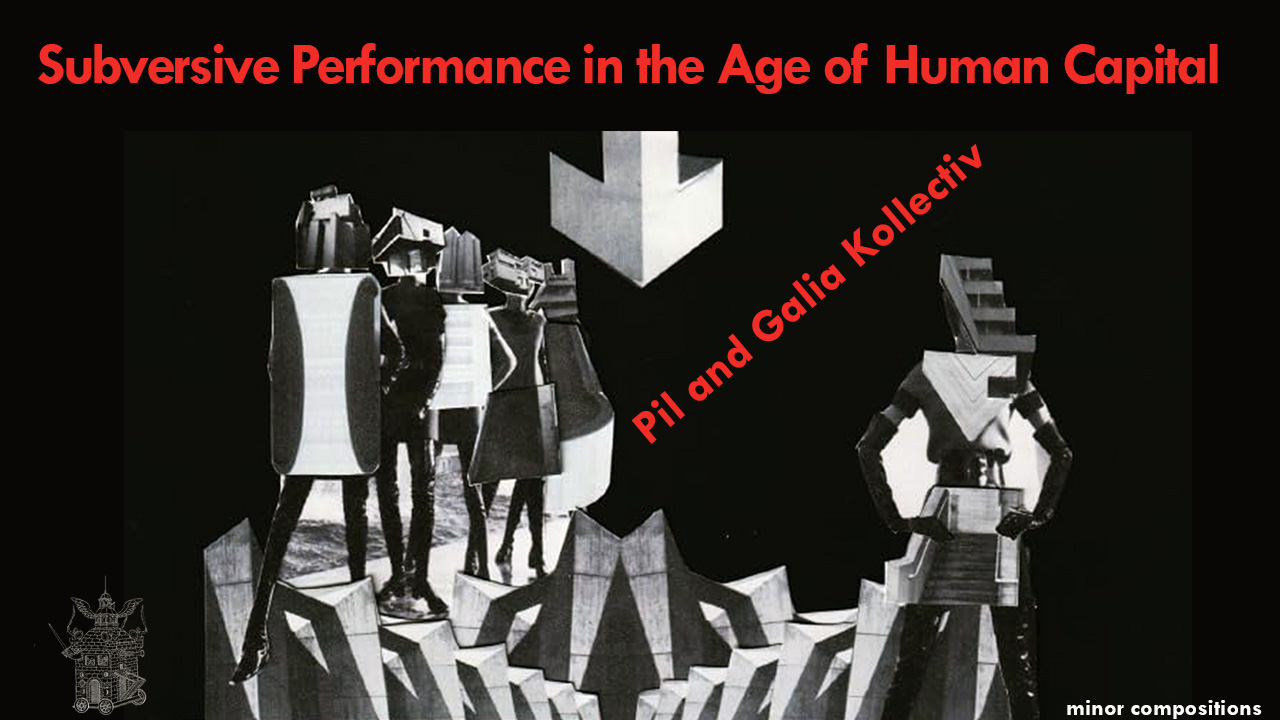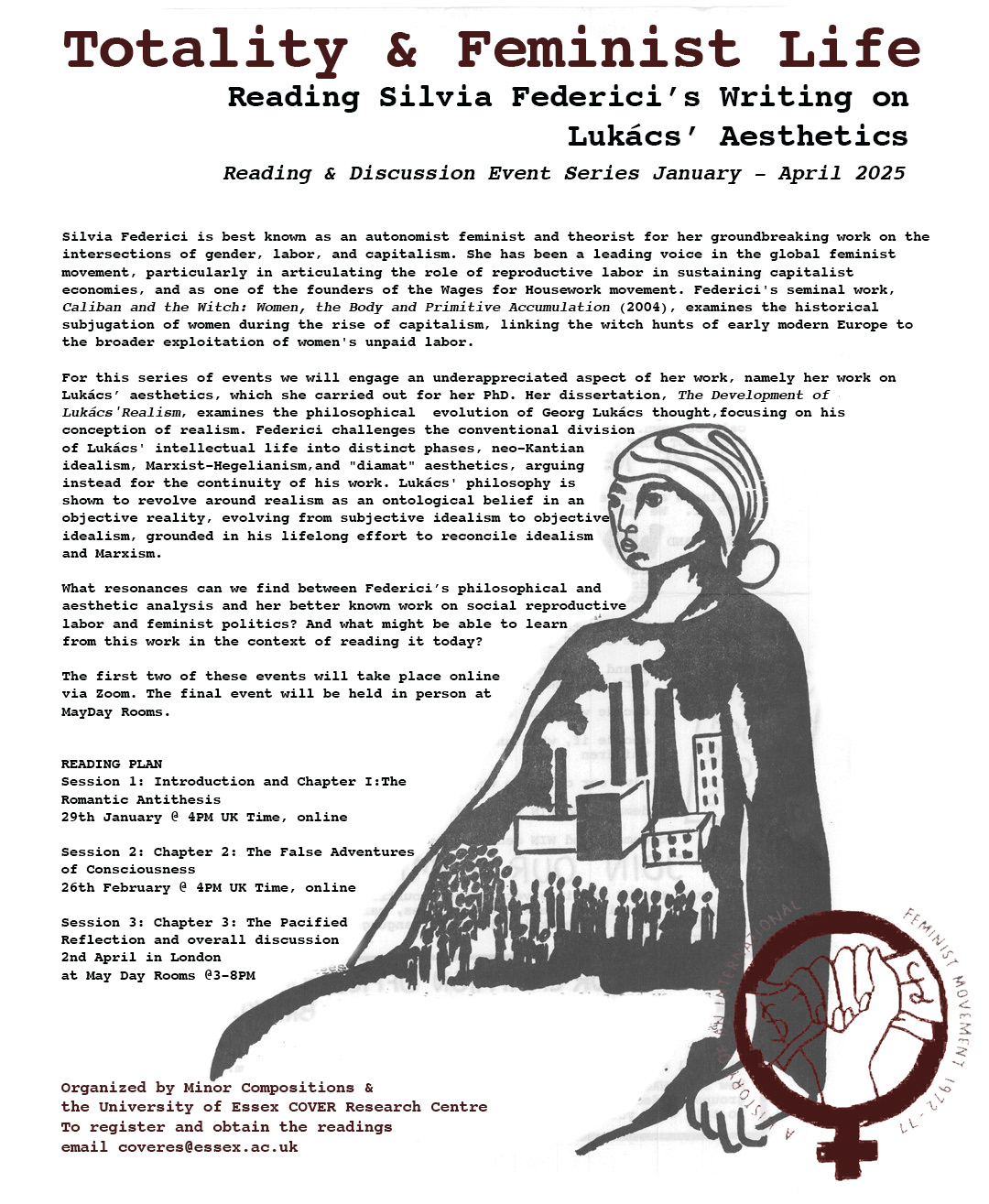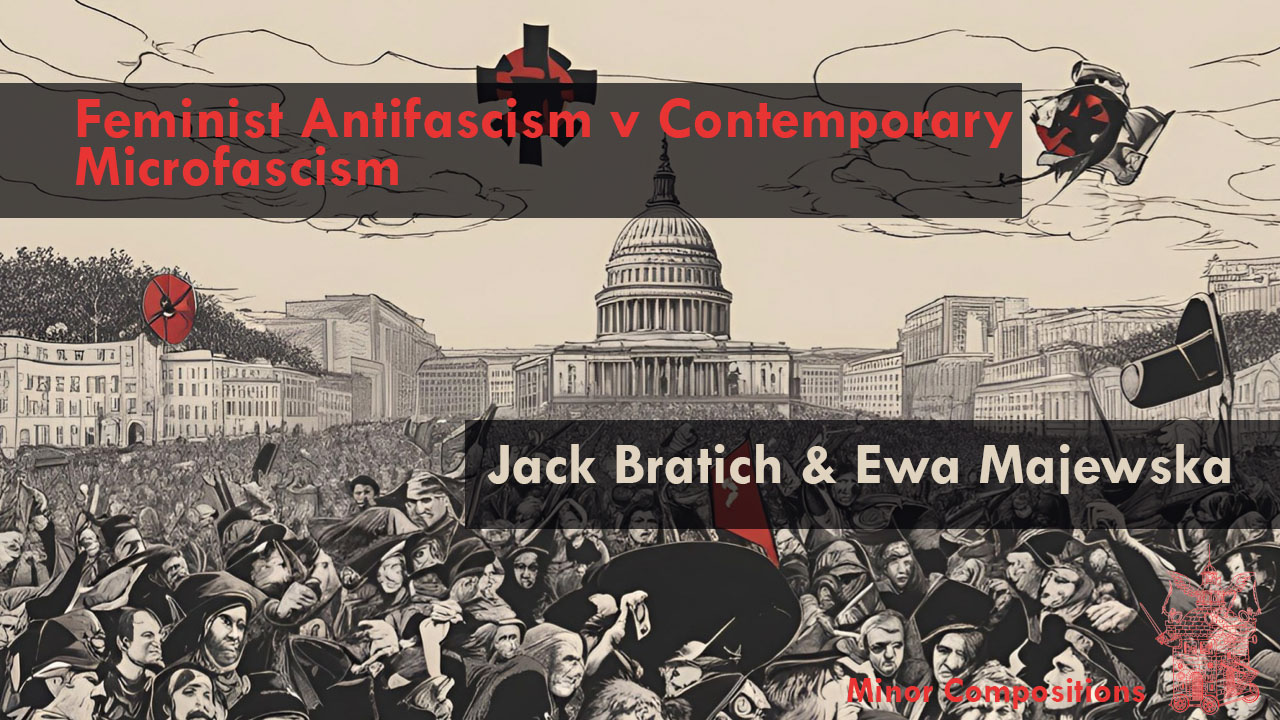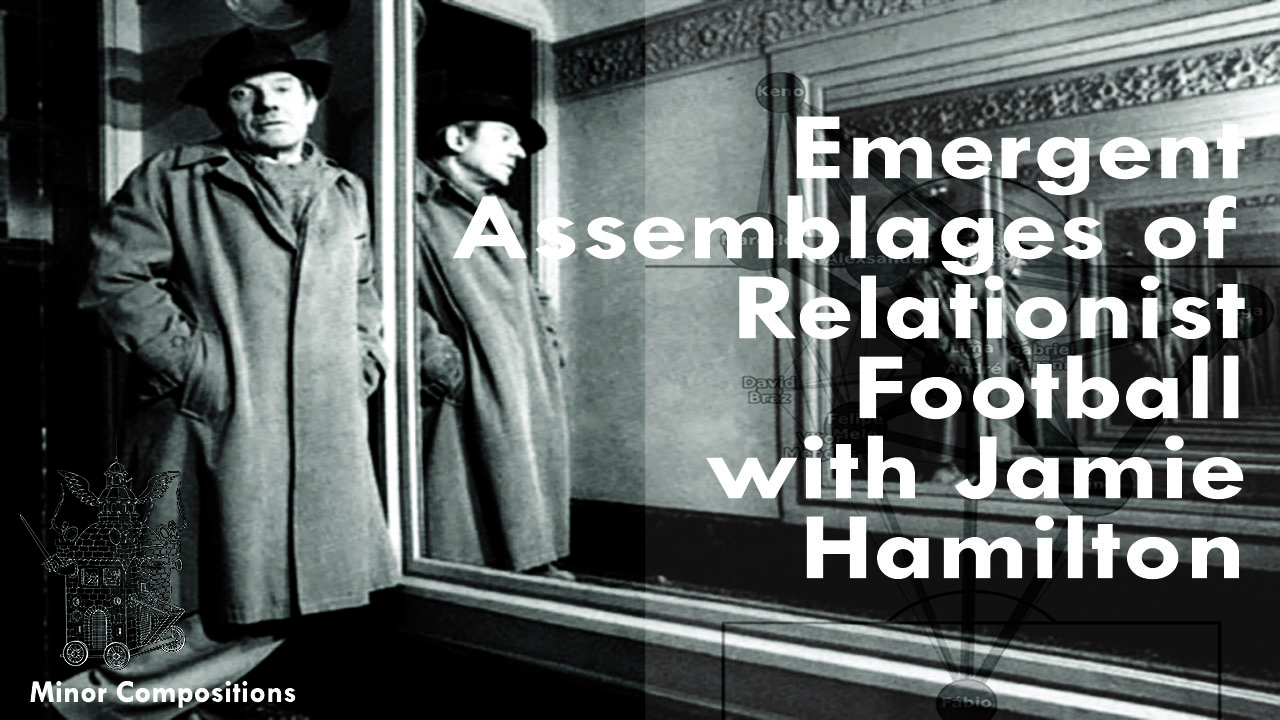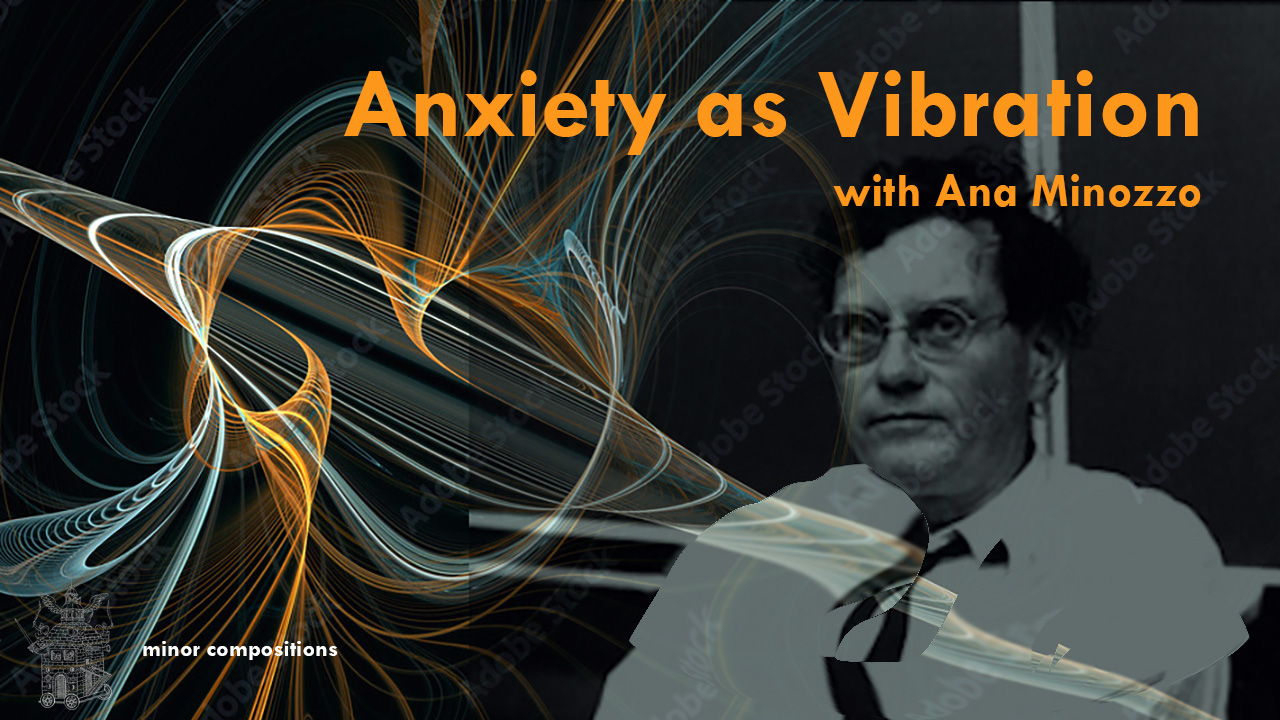-

Jobs, Jive, & Joy
Minor Compositions Podcast Episode 24 Jobs, Jive, & Joy with Bernard Marszalek & Peter Bloom For this episode we have a conversation with Bernard Marszalek and Peter Bloom about Bernard’s new book Jobs, Jive, & Joy: An Argument for the Utopian Spirit. In it we cover a wide range of topics including tech bros, the…
-

No Authority No Self
Minor Compositions Podcast Episode 23 No Authority No Self, or, Penny Rimbaud at the Substation As part of previewing and preparing for a larger project with Penny Rimbaud, this episode revisits a conversation with Penny from 2017. This was part of the “Stop the City… Revisited” installation which was part of “Discipline the City” exhibition…
-

Unlearning Routines of the Impossible
Unlearning Routines of the Impossible Edited by Janine Armin and Annette Krauss What are the struggles, entanglements, and joys of practicing unlearning in predominantly western contexts? Unlearning Routines of the Impossible responds to this question through revisiting the artistic research projects Sites for Unlearning, (co-)initiated by Annette Krauss. The sites are experimental gatherings where the…
-

Unlearning Exercises
Unlearning Exercises. Art Organizations as Sites for Unlearning Edited by Binna Choi, Annette Krauss, Yolande Zola Zoli van der Heide, Liz Allan Shares a set of collective unlearning exercises to make way for a culture of equality, difference and fairness in art organizations. Learning is often progress-oriented, institutionally driven, and focused on the accumulation of…
-

Subversive Performance in the Age of Human Capital
Minor Compositions Podcast Episode 22 Subversive Performance in the Age of Human Capital with Pil & Galia Kollectiv In this episode we chat with Pil and Galia Kollectiv to explore their new book, Subversive Performance in the Age of Human Capital. Stevphen was originally to take part in the book release event last autumn in…
-

Totality and Feminist Life
Totality and Feminist Life: Reading Silvia Federici’s Writing on Lukács’ Aesthetics Reading & Discussion Event Series January – April 2025 Silvia Federici is best known as an autonomist feminist and theorist for her groundbreaking work on the intersections of gender, labor, and capitalism. She has been a leading voice in the global feminist movement, particularly…
-

Feminist Antifascism v Contemporary Microfascism
Minor Compositions Podcast Episode 21 Feminist Antifascism v Contemporary Microfascism In this episode of Minor Compositions we delve into the complex intersections of gender, power, and contemporary alt-right and neofascist politics with Jack Bratich and Ewa Majewska. Drawing on Bratich’s On Microfascism: Gender, Death, and War and Majewska’s Feminist Antifascism: Counterpublics of the Common, the…
-

The Arts of Logistics
Minor Compositions Podcast Episode 20 The Arts of Logistics with Michael Shane Boyle & Elaine W Ho This episode is a conversation around the new book The Arts of Logistics: Artistic Production in Supply Chain Capitalism by Michael Shane Boyle. For this conversation we are joined by Elaine Ho, who artistic practice explores similar areas.…
-

Emergent Assemblages of Relationist Football
Minor Compositions Podcast Episode 19 Emergent Assemblages of Relationist Football with Jamie Hamilton For this episode we talk with Jamie Hamilton, a football coach and tactical writer based at Ayr United in Scotland. Hamilton is best known for coining the idea of relationism in football, which is an approach that emphasizes emergent patterns of play…
-

Anxiety as Vibration
Minor Compositions Podcast Episode 18 Anxiety as Vibration with Ana Minozzo For this episode we talk with we chat Ana Minozzo about her new book Anxiety as Vibration: A Psychosocial Cartography. What can anxiety do if approach anxiety not simply as a problem to be solved, but also as a potential site of rupture and…
